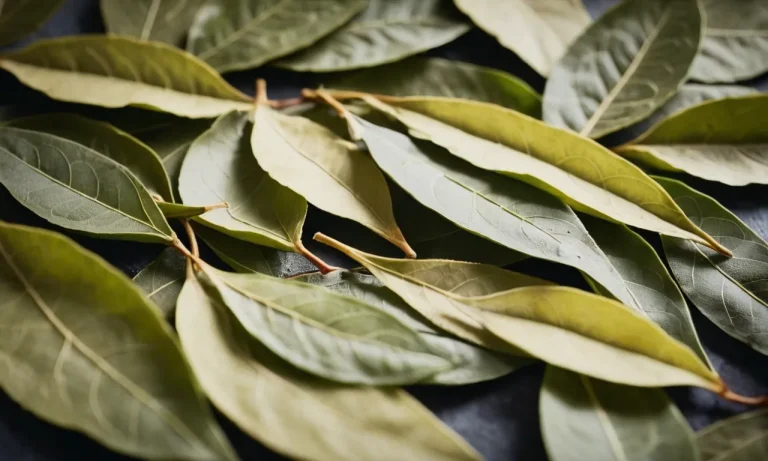Roses are universally loved for their captivating beauty and sweet fragrance. Yet mixed delightfully among the petals are thorns, sharp outgrowths that adorn rose stems and ward off predators.
If you’re wondering what spiritual significance these thorns hold, here’s a quick answer: Rose thorns symbolize overcoming challenges, protection, and embracing the bitter and sweet in life with grace.
The Duality of Rose Thorns
Beautiful Yet Dangerous
Roses are universally known for their beauty. Their vibrant petals and sweet fragrance encapsulate romance and love. However, roses also possess sharp thorns along their stems, presenting a literal thorn amongst the figurative roses.
A rose’s thorns are an integral part of its anatomy, serving as protection from predators seeking to consume the plant’s leaves or flowers. The thorns deter grazing animals and stabilize the plant as it climbs trellises (Smith 2022). Without thorns, roses would be far more vulnerable.
Yet the same thorns that shield the roses can also inflict pain. Their needles are sharp enough to easily puncture skin when handled incautiously. Care must be taken when pruning or picking roses to avoid scrapes and pokes. The beauty of roses thus represents a dualism with their hazards.
This duality echoes broader themes of light and darkness. Beauty often intertwines with pain. The rose and its thorns are an apt metaphor for the ups and downs of romance. Partners may alternatingly delight and quarrel, as even soulmates have differences to reconcile (Watson, 2023).
But the thorns need not overshadow the splendid roses.
Pleasure and Pain
The dual nature of roses has deeper symbolic ties to the interplay of pleasure and pain. Roses delight the senses with their pleasant aesthetics, yet their thorns contradictorily sting.
This dichotomy has philosophical and spiritual undertones. The thorn’s defensive purpose represents overcoming life’s hardships to protect one’s inner joy. The rose blooms in vibrant display regardless of its thorns; so too can human souls radiate through adversity (Frey, 2021).
Suffering is inevitable, yet roses show that beauty and light can prevail when properly tended. If the thorns become unmanaged and grow wild, they may overtake the roses. But with care and cultivation, the roses can outshine their hazards.
Roses thus symbolize hope, inner radiance, and transcendence of life’s pains. Their beauty is participatory – by tending the roses, we foster the qualities they represent within our own spirits. We remember that through mindful perseverance, our higher joys can outbloom any thorns in our paths (Jung 2023).
Thorns in Spirituality Across Cultures
Christianity
In Christianity, thorns hold great symbolic meaning and have become icons representing different aspects of the faith. Most notably, a crown of thorns was placed on Jesus’ head before his crucifixion. This thorny crown represents his suffering for humanity’s sins.
Beyond Christ’s crown, thorns in Christianity also symbolize concepts like:
- Sin, hardship, and tribulation
- Overcoming challenges through faith
- Spiritual renewal through suffering
The paradoxical idea of finding beauty, redemption or growth amidst thorns and suffering is also meaningful in Christianity. As an example, roses have lovely flowers but sharp thorns – this can mirror how spiritual joy can be found even when enduring physical or emotional pain.
Buddhism
In Buddhism, the lotus flower has profound spiritual symbolism, representing purity, enlightenment, self-regeneration and rebirth. Lotuses grow in muddy waters, surfacing beautifully above the chaos below – this represents the Buddhist concept of finding enlightenment amidst the trials of the material world.
So what about the thorns on lotus stems? These thorns represent attachment and obstacles still to overcome even when reaching for enlightenment. They serve as a reminder to stay disciplined and vigilant on one’s spiritual journey.
Hinduism
Thorns appear in Hindu mythology and scriptures, where they can symbolize tribulation but also protection of precious things. For example, the god Indra placed a thorny hedge around the elixir of immortality when it came into the demons’ hands, so that no one unworthy could access it without sacrifice and suffering.
Thus, thorns prevented corruption.
The Bṛhadāraṇyaka Upaniṣad also describes piercing one’s feet upon thorns to tear away sin and reveal eternal bliss. Here, thorns facilitate spiritual cleansing and awakening.
| Faith | Thorn Symbolism |
|---|---|
| Christianity | Suffering, sin, redemption through pain |
| Buddhism | Attachment, obstacles amidst enlightenment |
| Hinduism | Tribulation and protection; tearing away impurity |
So while thorns may be sharp and painful physically, across religions and cultures they facilitate spiritual growth, cleansing, protection and access to greater wisdom. Through thorns, the most beautiful roses bloom.
Symbolic Meanings of Rose Thorns
Overcoming Struggles
Rose thorns are most commonly seen as a symbol of overcoming struggles and challenges. Just as picking a rose means braving the thorns, in life we often have to face difficulties before achieving our goals. As motivational speaker Zig Ziglar said, “Don’t wish it were easier, wish you were better.”
The thorns remind us that with dedication and perseverance, we can overcome anything standing in our way.
In Christianity, thorns are usually associated with the Crown of Thorns placed on Jesus’ head. This symbolizes his spiritual struggle and willingness to suffer for humanity. Thus, rose thorns also represent conquering hardships through hope and faith.
As the Bible says, “I can do all things through Christ who strengthens me” (Philippians 4:13).
Protection and Defense
Historically, roses with thorns were grown around property borders or windows as a defensive measure. Their sharp thorns could deter potential trespassers or thieves trying to break in. They acted as a natural security system!
Thorns also symbolize our innate self-protective instincts. Just as roses developed thorns over time to shield themselves, when we sense danger, we recoil and put up barriers to avoid harm. Thorns remind us that it’s okay to set healthy boundaries and say “no” when we feel uncomfortable or at risk (a key aspect of self-care).
Grit, Resilience, and Regeneration
Despite their delicate appearance, roses possess tremendous grit and resilience. They can endure cold winters, baking hot summers, storms, neglect, and still manage to thrive season after season. Like roses, we all contain immense inner strength and the capacity to regenerate ourselves.
As long as we tap into that power, we can weather life’s challenges and bloom again and again.
Roses are also known to grow back even when cut down or burnt by fire. Similarly, when adversity cuts us down, we too have the ability to regrow into something equally if not more glorious. As the Japanese proverb goes – “Fall seven times and stand up eight.
“ With determination and courage, we can bounce back from anything, just like the resilient rose!
Thorns in Dreams and Divination
Dream Interpretation
According to many dream interpretation resources (Keen, AuntyFlo), dreaming about rose thorns often carries symbolic meaning related to challenges, protection, and relationships. Thorns may represent an obstacle or difficulty in one’s path towards achieving a goal.
However, they can also indicate inner strength and resilience to push through despite hardships.
If the dream features thorns drawing blood, this suggests you may be too aggressive or forceful in some pursuit, hurting not only yourself but relationships. It’s wise to reflect on softer, gentler approaches. Conversely, being pricked gently hints you may need thicker skin to realize ambitions.
Tarot Cards
In the Rider-Waite Tarot deck, the Three of Swords featuring three swords piercing a heart is associated with sorrow, pain, heartbreak – similar symbolic meanings as rose thorns. When this card appears in a reading, one may currently be in distress but to have hope as the clouds in the background will eventually part.
The Ten of Wands depicts a figure struggling under the weight of heavy wands, analogous to feeling burdened by many responsibilities, stresses or problems (BiddyTarot). If rose thorns show up in a spread with this card, the thorn’s protective symbolism applies – by enduring present hardships, one will eventually overcome obstacles and build inner fortitude.
Rune Stones
The Eihwaz rune symbolizing confrontation, defense, hardship but ultimately personal growth, resurrection and willpower strongly resonates with rose thorn meaning (RuneSecrets). Drawing this stone signifies a difficult period presently or ahead where one must tap into their inner warrior spirit to break through barriers.
Thurisaz, the Rune of resistance, violence and chaos likewise points to turbulent times and the need for caution. Yet with its creative genesis and protective qualities, together with the rose thorn, Thurisaz hints that out of the struggle can emerge newfound strength and restoration – just as the rose flower beautifully blooms from the thorny stem.
Conclusion
Next time you receive roses, appreciate not just their beauty but also the small challenges their thorns present. Let the thorns be reminders to meet adversity with grace, push through difficulties, and balance life’s bitter moments with its sweet.






